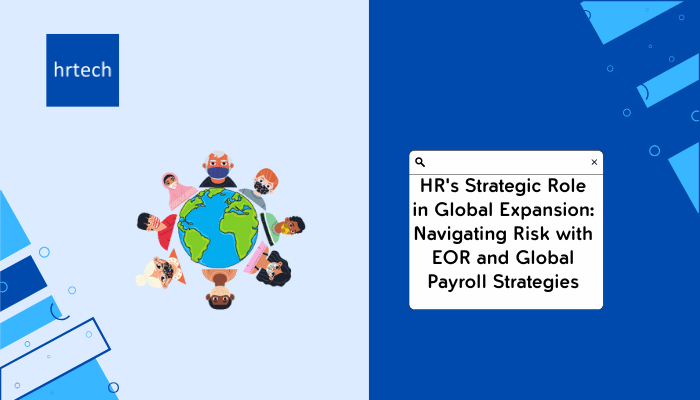Human resources (HR) has evolved from a support function to a vital strategic partner, pivotal to global success. With 93% of organizations planning to expand into new markets in the next three years, HR’s strategic role in global expansion is undeniable.
As businesses venture across borders, HR must navigate intricate challenges, including aligning people strategies with business objectives, ensuring compliance with diverse international laws, and managing cultural nuances across regions. This focus underscores how HR adapts and leads these efforts, empowering companies to achieve sustainable global growth.
This article will explore HR’s multifaceted contributions from strategic talent acquisition and development to navigating legal terrains and fostering cultural integration.
You’ll gain insights into how HR acts as a cornerstone for businesses aiming for international success and how leveraging these strategies can smoothen your path to becoming a truly global entity.
How Does HR Play a Strategic Role in Global Expansion?
HR plays a critical role in supporting and driving a company’s international growth ambitions. Beyond recruitment and employee management, HR is essential in aligning workforce strategies with the company’s global goals, ensuring smooth entry into new markets.
By handling compliance with diverse international laws, navigating cultural differences, and developing tailored employee programs, HR ensures that every expansion effort is well-supported.
From streamlining payroll to overseeing talent development, HR’s strategic role in global expansion is about building a cohesive workforce that adapts and thrives in varied environments, positioning the company for long-term success in each region.
This alignment is vital because it ensures that the company’s workforce supports its global growth plans.
We can categorize HR’s strategic functions in global expansion into several key areas:
Talent Acquisition and Development:
One of the fundamental roles of HR in global expansion is talent acquisition and development. HR focuses on attracting, hiring, and retaining top talent from varied backgrounds across the globe.
HR aims to place the right individuals in roles that harness their strengths, improving productivity and cohesion among global teams. Strategic human resource practices in this area support the organization’s ability to thrive in new markets.
Legal Navigation:
HR is instrumental in navigating the complex compliance and legal challenges that come with entering new markets. Different countries have different laws and regulations, and it is the job of a skilled HR team to ensure compliance with these local requirements.
This not only protects the company from legal troubles but also builds a solid foundation for operations in new regions.
Legal complexities in international expansion can be daunting, but HR’s role in ensuring compliance is vital. Explore these intricacies and learn actionable strategies to maintain compliance and efficiency in our detailed eBook. Download it now to ensure your HR team is equipped for every regulatory hurdle.
Compensation and Benefits Strategy:
HR also crafts compensation and benefits packages that are competitive on a global scale while being sensitive to local economic and cultural contexts. This involves a deep understanding of varying costs of living and cultural expectations to offer packages that are attractive yet viable.
Cultural Awareness and Integration:
Cultivating cultural awareness and promoting integration is another essential HR role. HR facilitates cross-cultural training and fosters an inclusive environment that acknowledges and integrates diverse perspectives. This enhances team dynamics and aids in tailoring market strategies to suit local consumers.
HR aligns with cross-functional goals by addressing global expansion challenges through strategic collaboration.
Navigating Risk in Global Expansion
HR identifies and navigates risks affecting global expansion. These typically fall under compliance, cultural, and geopolitical risks, and each requires careful consideration and strategic planning.
| Risk Factor | Description | Mitigation Strategies |
| Compliance Risks | Navigating foreign labor laws, regulations, and standards can lead to legal issues if not managed. | Partner with local legal experts to ensure compliance with local laws and regulations. |
| Cultural Risks | Differences in cultural norms can affect business operations and employee relations. | Conduct cultural training and engage local consultants to understand cultural nuances. |
| Geopolitical Risks | Political instability and changes in government policies can impact business viability. | Monitor political developments and maintain flexible operational plans to adapt to changes. |
| Economic Volatility | Fluctuations in inflation, currency exchange rates, and interest rates can affect profitability. | Diversify currency holdings and develop financial cushions to absorb potential losses. |
| Financial Risks | Challenges related to funding, managing cash flow, and understanding local financial products. | Work with banks for trade finance solutions and optimize working capital management strategies. |
Key Legal and Compliance Considerations in Global Expansion
Expanding your business into international markets is like learning to drive in a new country. You need to understand the rules of the road, and each country has its own set.
One of the most crucial aspects of this process is adhering to local employment regulations and ensuring that your documentation aligns with these laws.
Adhering to Local Employment Regulations and Documentation
These regulations can be drastically different from one country to another. For instance, European and Latin American countries often have robust labor protections, including varying entitlements for annual leave and specific working hour requirements.
This means that using a one-size-fits-all approach with employment contracts could lead to significant issues.
To navigate these waters effectively, consider engaging local HR professionals or experts. Their insights can be invaluable in crafting employment contracts that comply with local labor laws. Language and cultural nuances must be considered to ensure contracts are clear to local employees.
Importance of Staying Updated with Changing Laws
Local employment laws can change quickly, catching businesses off-guard if they are not paying attention. That’s why having a system to stay updated is essential. By subscribing to legal updates and collaborating with law firms, you can receive timely information about any new regulations.
Regular audits and compliance checks are proactive measures to spot potential issues before they become significant problems. Additionally, using subscription services like newsletters or webinars can keep you informed without having to manually track every legal change.
Collaborating with Legal Experts for Local Compliance
Including legal experts in your expansion strategy is like having a trusted advisor by your side. These specialists understand the intricacies of local labor laws and help you navigate them. They offer guidance on competitive compensation packages and ensure compliance with local tax and social security requirements.
Moreover, leveraging technology such as HR software configured to handle local regulations can make managing compliance more efficient.
Using an EOR helps mitigate risks related to data privacy and worker classification, ensuring compliance with laws like GDPR. One of the key advantages of using an EOR is that it helps mitigate the risks associated with managing independent contractors by ensuring that workers are classified correctly and are compliant with all relevant laws and regulations.
Benefits of Using Employer of Record (EOR)
In the quest for global expansion, leveraging an Employer of Record (EOR) can be a game-changer for businesses aiming to tap into the international talent pool.
One of the most compelling benefits that an EOR brings to the table is the minimization of risks when employing global talent.
By taking care of payroll, taxes, employee benefits, and ensuring compliance with local labor laws, EORs significantly reduce the liability and administrative burdens that companies typically face when entering new markets.
By streamlining payroll, managing local compliance, and ensuring workforce alignment, EORs offer a robust foundation for expanding globally. To learn more about leveraging HR tools like EORs and maximizing your HRMS potential, download our in-depth eBook. Start transforming your HR strategy for global success today.

1. Minimises Risks in Hiring Global Talent
An EOR ensures all employment practices comply with local laws, minimizing risks related to labor regulations, tax compliance, and employee benefits. By handling these complexities, the EOR protects your business from potential legal or financial issues.
2. SaaS-based EORs Provide Greater Transparency
The many EORs offer greater transparency and accessibility by being SaaS-based. Through their platforms, businesses can monitor their international workforce’s compliance and financial activities in real-time, creating a seamless and efficient process.
This, in turn, enables companies to employ talent within days, rather than going through the lengthy procedures of establishing a local office.
3. Enables You To Employ Talent In Days
Companies can avoid the complexity of coordinating with multiple partners across different countries, as the EOR consolidates these services under one umbrella.Using an EOR allows you to onboard global talent in just a few days. Since the EOR already has the necessary infrastructure and knowledge, you can skip the long setup times associated with direct hiring in foreign countries.
4. Streamlines Management by Eliminating Multiple Partners
An EOR centralizes all employment management, meaning you don’t have to coordinate with multiple legal, payroll, or HR providers. This approach simplifies operations and ensures consistency across regions.
5. Reduces Cost of Operation
In addition to simplifying operations, EORs play a pivotal role in reducing operational costs. By avoiding the necessity of setting up and maintaining a local entity, businesses can significantly cut down expenditures related to establishing a physical presence abroad.
6. Arranging Visas and Work Permits
Moreover, handling logistical requirements such as arranging visas and work permits becomes part of the service, ensuring that businesses can remain focused on their core objectives while expanding their footprint globally.
What is a global payroll strategy?
A global payroll strategy is a holistic approach to managing an organization’s payroll needs across various countries. As businesses expand into new territories, they face the complex task of handling payroll in different jurisdictions. This involves navigating local tax laws, employment standards, and diverse payment systems. At its core, a good global payroll strategy ensures that all these operations are managed with accuracy and compliance, reducing the risk of errors and minimizing operational costs.
According to a report of payroll statistics & trends 94% of business leaders worldwide would like to see their payroll software integrated across all their HR systems.
Adhering to Compliance
Compliance with local laws and regulations is the cornerstone of any robust global payroll strategy. Failure to comply with tax laws, labor regulations, or local standards can lead to significant penalties and damage to the business’s reputation. Compliance ensures that payroll practices align with ethical standards, thereby bolstering trust in the organization.
Leveraging Automation
Another essential feature of a strong strategy is the integration of automation. By automating payroll processes, companies can streamline operations, reduce redundancy, and minimize the potential for human error. Automation significantly enhances productivity and cost efficiency, allowing HR and finance teams to focus on strategic decision-making rather than administrative tasks.
Ensuring Data Security
In an age where data breaches are a regular concern, the security and privacy of payroll data is crucial. Regulations like GDPR require organizations to uphold high standards for data protection. A solid global payroll strategy must include robust security measures to protect sensitive employee information and ensure compliance with these regulations.
Achieving Scalability and Flexibility
A scalable and flexible payroll strategy is vital for adapting to changes in business size or workforce dynamics. Centralized processes help unify payroll operations across various regions, which enables comprehensive reporting and oversight at a global level.
What are the benefits of having a global payroll strategy?
The benefits of implementing a well-crafted global payroll strategy are numerous. It not only ensures compliance with international regulations but also reduces manual effort and boosts employee satisfaction by ensuring accurate and timely payments.
According to a payroll statistics report 52% of businesses now have a detailed plan in place to protect their payroll operations worldwide, up from 46% last year.
- Delivers a uniform payroll experience for employees across different regions.
- Minimizes the risk of legal issues by centralizing adherence to local tax and employment laws.
- Lowers expenses by consolidating payroll functions instead of relying on multiple local vendors.
- Provides clear reporting and tracking of payroll expenses worldwide for better financial oversight.
- Simplifies the process of expanding into new regions with a streamlined payroll system.
- Ensures timely and accurate payments, enhancing employee satisfaction globally.
In addition, by supporting business expansion with scalable solutions, a global payroll strategy ultimately enhances the organization’s resilience and agility.
HR’s strategic role in global expansion is undeniable. For a comprehensive dive into how HR can drive your expansion efforts while minimizing risks, download our eBook now and discover the key systems that streamline your HR functions on a global scale.
Leveraging Local HR Expertise
When expanding into new global markets, tapping into local HR expertise becomes crucial for navigating the complex international business landscape. Quality foreign consulting resources are indispensable for understanding local regulations, cultural nuances, and market conditions.
Local HR Experts
Local HR experts bring invaluable support in designing onboarding processes that are culturally sensitive, helping new employees integrate smoothly and quickly. Their insights into local customs, business etiquette, and regulatory environments enhance the employee experience and lead to improved satisfaction and retention.
Coordinating Multiple Local Entities
However, challenges arise when coordinating multiple local entities. Each country presents its own legal, regulatory, and cultural requirements, and managing separate HR departments increases administrative costs and potential inconsistencies.
Many companies find success through advanced HR technologies, such as centralized systems for payroll and benefits, which help maintain consistency while allowing for local adaptations.
This technological support is crucial for managing administrative burdens and ensuring that all team members are aligned, despite geographic and cultural distances.
Balancing Standardization and Local Adaptation
Standardizing HR practices across operations can create a fairer system, but flexibility is equally important. Striking a balance between standardization and local adaptation involves fostering cultural sensitivity within the company.
Respect for diverse customs and values includes aligning HR strategies with local work expectations, communication styles, and leadership norms. Additionally, using flexible compensation and benefits packages that adhere to local standards and regulations ensures compliance and competitiveness in local job markets.
Mitigating Risks and Attracting Talent
Incorporating local market knowledge into HR strategies not only helps attract top talent but also mitigates risks of non-compliance. Partnering with global payroll providers who employ local market experts is invaluable in ensuring payroll practices comply with local laws and tax requirements, reducing legal risks.
Implementing Global Strategic HRM
Implementing global strategic HRM is essential for aligning workforce practices with a company’s international goals, enabling a seamless transition into new markets. By addressing compliance, cultural nuances, and efficient HR processes, HR’s strategic role in global expansion fosters cohesive and effective global operations.
1. Compensation and Benefits
When entering global markets, managing compensation and benefits requires a delicate balance between the company’s overall standards and regional expectations. HR’s strategic role in global expansion includes designing competitive compensation packages that attract top talent in diverse locations while remaining cost-effective.
- Align benefits packages with local standards and employee needs
- Address currency fluctuations and cost-of-living adjustments
- Consider long-term incentives and region-specific perks
2. Employee Relations
Building strong employee relations is essential to maintaining a positive work culture, especially when navigating the complexities of a global workforce. HR must proactively address local concerns, cultural differences, and diverse work habits to foster collaboration and morale.
- Encourage open communication to address cultural and workplace differences
- Implement policies to ensure fairness and inclusivity across locations
- Develop initiatives to enhance employee engagement globally
3. Employee Development and Training
Providing relevant training and development opportunities ensures that employees are equipped to meet both local and global business goals. HR’s strategic role in global expansion includes tailoring these programmes to regional requirements, empowering staff to succeed in their unique environments.
- Create training programmes that cater to local market needs and skill gaps
- Offer language and cultural training for smooth international collaboration
- Promote leadership development to prepare employees for global roles
4. Legal and Ethical Compliance
In the realm of international business, compliance is key. HR’s strategic role in global expansion involves staying updated on each region’s legal and ethical requirements to avoid regulatory issues and maintain the company’s reputation.
- Ensure adherence to local employment laws, including working hours and benefits
- Monitor ethical standards and implement company-wide codes of conduct
- Partner with local legal experts to stay ahead of regulatory changes
5. HR Systems and Data Processing
Standardized yet adaptable HR systems are crucial for managing a global workforce. Effective data processing ensures seamless HR functions across borders, from payroll to performance evaluations. This is part of HR’s strategic role in global expansion, helping the company keep processes efficient and compliant.
- Implement centralized HR systems for cohesive data management
- Ensure data privacy and compliance with local regulations (e.g., GDPR in Europe)
- Utilize data analytics to assess workforce trends and optimize decision-making
6. Recruitment and Onboarding
Recruiting the right talent is the foundation of successful expansion. HR’s strategic role in global expansion includes adapting recruitment strategies to attract local talent, while onboarding processes must be designed to make employees feel part of the global team.
- Develop localized recruitment strategies to attract top talent in each market
- Standardize onboarding with region-specific information for a smooth start
- Promote a global company culture while respecting local diversity
The Role of HR in Future-Proofing Global Expansion
HR’s strategic approach is central to the success of international operations, primarily through developing robust global HR strategies that prioritize cultural competencies and effective communication.
Strategic HR management aligns with business goals, preparing organizations for obstacles. This involves a continuous process of monitoring and evaluation, which allows HR teams to anticipate and address potential challenges before they escalate into significant risks.
Through such proactive measures, businesses can safeguard their international operations and maintain a competitive edge.
Future-proofing international operations requires embracing advanced HR technology and leveraging software-as-a-service (SaaS) solutions. By implementing integrated systems for talent management, payroll processing, and time tracking, HR can streamline processes and improve efficiency across global operations.
Want to learn more about HR’s strategic role in global expansion and how HRMS can transform your approach? Our in-depth eBook covers all the essentials for maximizing HR productivity with the right systems. Download it now to start building a more efficient, data-driven HR function for your global operations.







